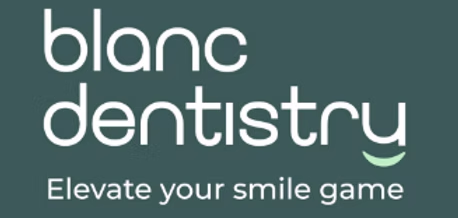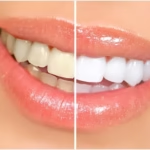TMJ Treatment In Pune: What to Expect at Your First Consultation
Temporomandibular Joint (TMJ) disorders can significantly impact your daily life by causing pain, discomfort, and restricted jaw movement. If you’re seeking TMJ treatment in Pune, your first consultation is an important step toward understanding your condition and beginning the right treatment path.
What is TMJ?
The Temporomandibular Joint (TMJ) connects your jawbone to your skull, allowing for movements like talking, chewing, and yawning. You have one joint on each side of your jaw. When this joint becomes injured or inflamed, it leads to TMJ disorders—commonly referred to as TMD.
TMJ disorders can affect the jaw muscles, joint, and surrounding ligaments, resulting in a range of symptoms that vary from mild discomfort to chronic, debilitating pain. While the condition is not life-threatening, it can affect your ability to eat, speak, and carry out daily activities comfortably.
Common Symptoms of TMJ Disorders
Before visiting a specialist for your first consultation, it’s helpful to recognize the common symptoms of TMJ disorders:
- Jaw pain or tenderness
- Difficulty in opening or closing the mouth
- Clicking or popping sounds when you open or close your mouth
- Facial pain
- Earaches or a feeling of fullness in the ear (not due to ear infection)
- Headaches, especially around the temples
- Pain while chewing
- Jaw locking or getting stuck in an open or closed position
If you’re experiencing any combination of these symptoms, it’s a good idea to consult a TMJ expert for evaluation and treatment.
Preparing for Your First Consultation
Your first TMJ consultation in Pune is likely to be a comprehensive session. To make the most of it, be prepared with the following:
- Symptom history: Note when your symptoms started, their frequency, and their severity.
- Medical and dental history: Bring a record of any past injuries, dental treatments, or chronic conditions.
- Lifestyle habits: Be ready to discuss habits like teeth grinding (bruxism), chewing gum, or stress levels.
Being honest and detailed with your responses will help the specialist assess your situation more accurately.
What to Expect at Your First Consultation
1. Discussion of Symptoms
The consultation usually begins with a detailed conversation about your symptoms. You’ll be asked questions such as:
- When did the pain start?
- Is the pain constant or occasional?
- Does jaw movement worsen the pain?
- Have you experienced any locking or clicking sounds?
This information helps narrow down whether your symptoms are related to TMJ or another issue.
2. Physical Examination
Next, the specialist will perform a physical examination of your jaw and facial muscles. This may include:
- Palpating (pressing) areas around your jaw to check for tenderness
- Assessing your jaw movement by asking you to open and close your mouth
- Listening for any clicking, popping, or grinding sounds
- Measuring the range of jaw motion
This hands-on assessment gives important clues about the joint’s functionality and any abnormalities present.
3. Bite and Teeth Analysis
TMJ disorders are often linked to bite problems. The specialist might check for misalignment, missing teeth, or uneven wear that could be contributing to jaw stress.
In some cases, a mold of your teeth might be taken for further analysis. If bite misalignment is suspected, your jaw and teeth positioning will be evaluated carefully.
4. Imaging Tests (if required)
To get a deeper understanding of the joint structure, the specialist may recommend imaging tests, including:
- X-rays: To view the bones and check for joint degeneration or abnormalities.
- CBCT (Cone Beam CT scan): Provides a detailed 3D image of the jaw structure and TMJ.
- MRI: Used to assess soft tissues like the articular disc and ligaments in the joint.
Not every patient will need advanced imaging, but if your condition is complex, these tests can be very helpful.
5. Diagnosis and Treatment Plan Discussion
Once the evaluation is complete, the specialist will diagnose your condition based on the examination and test results. If TMJ disorder is confirmed, they’ll explain:
- The nature and severity of your condition
- Contributing factors (e.g., bruxism, posture, stress)
- Short-term and long-term treatment options
This is the stage where you’ll receive a customized treatment plan based on your unique needs.
Common TMJ Treatment Options
The right treatment for TMJ disorders depends on the severity of your symptoms and the root cause. Most cases can be managed with conservative, non-invasive methods.
1. Lifestyle Modifications
The first line of treatment typically involves changes in daily habits:
- Eating soft foods
- Avoiding chewing gum and tough meats
- Practicing good posture
- Managing stress with breathing techniques or relaxation exercises
2. Medications
Medications may be prescribed to reduce inflammation, relieve pain, or relax the muscles:
- Anti-inflammatory drugs (NSAIDs)
- Muscle relaxants
- Pain relievers (over-the-counter or prescription)
3. Splints or Mouthguards
A custom-made dental splint or nightguard may be provided to:
- Prevent teeth grinding during sleep
- Reduce pressure on the joint
- Improve bite alignment
These devices are usually worn at night but may also be used during the day in some cases.
4. Jaw Exercises and Physical Therapy
Physical therapy for TMJ involves guided exercises that strengthen the jaw muscles, improve mobility, and reduce pain. Techniques may include:
- Stretching and relaxation exercises
- Ultrasound therapy
- Heat or cold compress therapy
5. Orthodontic Treatment
If bite misalignment is contributing to TMJ issues, orthodontic solutions like braces or aligners may be recommended to reposition the teeth and correct the jaw alignment.
6. Minimally Invasive Procedures
In some cases, if conservative treatments don’t work, minimally invasive options like the following may be explored:
- Arthrocentesis: A procedure to flush out fluid and debris from the joint using small needles.
- Injections: Corticosteroids or botulinum toxin (Botox) may be injected to relieve inflammation or muscle tension.
7. Surgical Intervention (Rare Cases)
Surgery is only considered in rare, severe cases where other treatments fail and the joint structure is severely damaged. Options include:
- Arthroscopy
- Open-joint surgery
- Joint replacement
These are always discussed thoroughly and considered a last resort.
When to Consider TMJ Treatment In Pune
If you’re based in or around Pune and struggling with persistent jaw pain, discomfort, or limited jaw function, consider seeking TMJ Treatment In Pune from a qualified dental or oral health specialist. Early diagnosis can prevent long-term complications and help you regain comfort in daily activities like speaking and eating.
Follow-Up and Long-Term Care
After your first visit, you may be scheduled for follow-up appointments to:
- Monitor your progress
- Adjust dental appliances
- Continue physical therapy
- Modify treatment if symptoms persist
Consistency in following your treatment plan plays a major role in long-term recovery.
Conclusion
Seeking TMJ treatment In Pune is the first step toward regaining comfort and normal jaw function. Your initial consultation involves a detailed examination, history taking, possible imaging, and a personalized treatment plan tailored to your condition. While TMJ disorders can be painful and disruptive, early diagnosis and consistent treatment often lead to significant relief without the need for surgery.
Start your journey toward TMJ relief and better oral health—consult Blanc Dentistry in Pune today.


